‘I felt like I was loved’: Harrison James speaks on the sexual abuse he suffered at the hands of his stepmum
When Harrison James was 13 his stepmother initiated a sexual ‘relationship’ with him. Today he wants to break down the misconceptions surrounding ‘lucky’ teen boys who are victims.
SA Weekend
Don't miss out on the headlines from SA Weekend. Followed categories will be added to My News.
When Harrison James’s stepmother began sexually abusing him when he was 13 he felt lucky. When she fell pregnant with his daughter when he was just 15 he felt lucky.
He even felt lucky when he had to pretend his daughter was his sister.
James will always remember that feeling. Lucky to have been chosen. Lucky to be in a relationship. Even feeling he might be in love.
It wasn’t until James was 19, watching his 14-year-old brother blow out his birthday candles when he came to realise what truly happened to him.
He had been coerced and abused by an adult woman. A woman who was meant to be protecting him, a mother-like figure in his life.
“Time really did slow down,” he tells SA Weekend. “I realised that this was the same age I was when the abuse began, roughly the same age, and I saw myself in him. I saw how he carried himself, how he spoke, how he thought and it was a jarring, emotional moment for me.
“Seeing my little brother … it brought that realisation into sharp focus and it was through that experience that the penny truly dropped and I fully comprehended the devastating impact of what I went through.”
For James, the abuse started when he was 13. His parents divorced three years earlier, when he was 10, and his dad remarried.
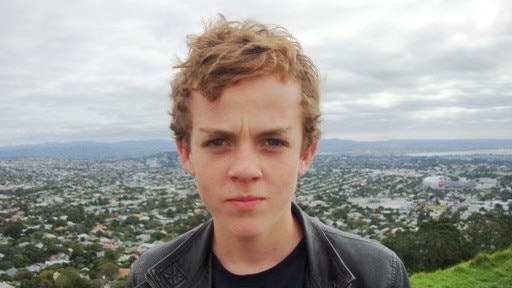
It started pretty quickly. His stepmum, who James would prefer not to name, asked to take him to the movies and proceeded to physically touch him in the theatre.
Days later, it progressed to outright sexual abuse which continued until James was 16 years old.
“It was a time in my life where I was incredibly vulnerable,” James, now 24, says.
“The abuse of various forms, it was emotional, there was sexual, and it all left very deep scars on my psyche, warping a perception of trust and safety.
“I felt like I was loved but really I was being showered in this inappropriate attention which then escalated to sexual abuse.
“My stepmother saw an opportunity to prey on me and it gradually escalated into more displays of control and coercion and it was this gradual sort of erosion of my boundaries and autonomy.”
James says “the most devastating consequence of his abuse” is not being able to see the daughter he fathered with his abuser.

“She was taken away from me when she was three years old,” he explains. “As far as I know she still believes that I’m her brother.”
When James was 19, his stepmother, who has never been charged, fled Australia with his daughter to the Philippines and he hasn’t seen them since.
“I fight the urge every single morning to get on the first flight to the Philippines and bring her back home where I know she’s safe but at the end of the day there’s so many contributing factors to it all,” he says.
“Do I want to fly there and take her away from a life she knows? Do I want her to come to the understanding that her brother is actually her father? One childhood has already been corrupted with what I’ve experienced, the last thing I want to do is be responsible for another childhood being corrupted.
“This is me trying to be a responsible parent and make sure my daughter’s best interests come before mine.”
James’s stepmother led him to believe that what they were engaging in was “a regular relationship”.
“With hindsight I now obviously view it as a total abuse of power,” he says.
“It was a corruption of my childhood and I didn’t tell a single soul what was going on behind closed doors until I was 19.
“I would go to school and carry the weight of that secret, and it felt like a backpack full of bricks. It was just devastating.
“There was fear, threats, manipulation. My stepmother would say that no one can find out and that we would both go to jail.
“I thought I was having an affair behind my father’s back. She would even suggest that I was the man in the relationship.
“I was the child, I was trapped in a web of manipulation and fear where even the thought of speaking out felt like a betrayal to my stepmother.
“It was an incredibly heavy burden to carry at such a young age.”
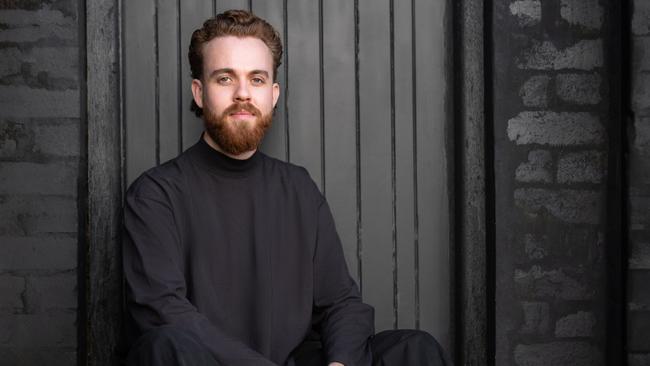
But during the abuse James couldn’t help but think this was what young boys should desire. He said it wasn’t just his stepmother telling him that this is something he should want, but society as well.
“Pornography and its specific categories like ‘step mum’ played a significant role in creating this perception I had,” he says. “I had popular culture where you can watch films and TV shows that often depict young male students having sex with an attractive female teacher who is then celebrated and given high fives for it after as if being sexually abused as a young man doesn’t count.
“This is the sort of pervasive content that was ingrained into me and it ingrained that sort of idea that what I was experiencing was something every young boy should strive for.
“Those societal influences made me feel as though my abuse was a badge of honour rather than any sort of violation.
“The normalisation and even collaboration of such scenarios in media and popular culture contributed to that internal conflict that I felt for many, many years. Instead of recognising the harm, I was conditioned to believe I was fortunate to receive the attention, that belief was incredibly damaging and compounded the confusion and shame that I already felt.”
James says the narrative that men should always want, strive for and enjoy sexual advances from women, regardless of the context, made it difficult for him to see himself as a victim, especially a victim of a crime.
James constantly received comments labelling the situation the “real life Stifler’s mum” or that men wished they had “what he had”. “These online discussions perpetuate the harmful stereotype of ‘lucky blokes’ when the perpetrator is a woman further marginalising male survivors,” he says.
James says society struggles to confront perpetrators of sexual violence no matter who they are. “Offenders of abuse are master manipulators, and they will use any means necessary, including gender stereotypes to evade accountability,” he says.
“The five foot two, Filipino woman who wouldn’t dare, you know … it was unimaginable that she would be able to commit such atrocities, right, it doesn’t fit that stereotypical idea of what a child sex offender is.”
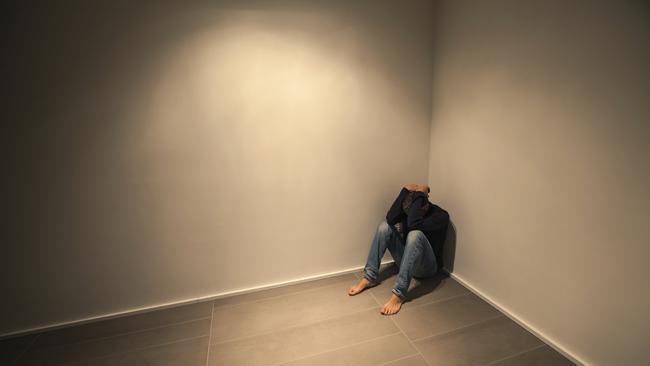
Academics from the Flinders University and Deakin University have published research that analyses 28 Facebook posts from 13 popular Australian newspapers which reveal common themes, including sexualised responses to attractive offenders. The online comments “illustrate a disconnect between harm and fantasy” when talking about women as offenders, rather than men, “as users appear to focus on the sexual aspects of the act and what they could (or would like to) benefit or receive from the interaction rather than its impact as a serious crime,” lead author Dr April Murphy, from Deakin’s School of Humanities and Social Sciences, says.
“The online users seem to struggle to consider the harms committed by women as equal to those committed by men, or indeed possible at all,” she says.
The researchers say denial of harm not only allows this kind of sexual violence to continue, arguably against both men and women, but also limits the likelihood of support or, in some cases, may enable retribution.
“Such responses have serious consequences for male victim-survivors affecting the likelihood of reporting and the perceived legitimacy of victimhood by victims and the community,” Murphy says.
Craig Hughes-Cashmore, CEO of Survivors & Mates Support Network (SAMSN), an organisation for male survivors of sexual abuse and their supporters, began the organisation with four others 13 years ago.
A survivor of sexual abuse himself at the hands of three male perpetrators, Hughes-Cashmore understood the importance of connecting with peers.
He says society must be better at validating victim-survivors with female perpetrators.
“If you don’t see yourself and you don’t hear yourself mentioned then you’re invisible and your experience isn’t recognised and, worse, if connected to your experience is a whole lot of myths around what that meant when, in fact, it doesn’t correlate with your experience … why would you come forward and talk to anyone if you feel like you’re going to be misunderstood and judged which is really unhelpful,” he says.
“We’ve got to get a lot better.”
Hughes-Cashmore says we as a society “need to start talking about sexual violence against people”.
“We so often talk about sexual violence against women, maybe we’ll get women and children, if we are lucky, but we often still hear women and girls,” he says.
“If you flip genders … it doesn’t stack up terribly well. We don’t treat (sexual violence against boys and men) with the seriousness and respect that it deserves, it’s still seen as a bit of a joke in some weird way and so long as that prevails, we’re always going to see an under-reporting of this type of offending.
“They’ll be met with ideas like, if you’re a male survivor of childhood sexual abuse you’re more likely to go on to offend against children, that’s not true and is the biggest barrier that stops men coming forward to seek help.
“If you were a male with a female perpetrator, you should have enjoyed it, so that shouldn’t be an issue. These are some of the things we still need to overcome.”
SAMSN will run its 100th eight-week flagship program for male survivors.
Hughes-Cashmore says that in each group, of which he usually has a waitlist of around 120 men, there is always someone who suffered at the hands of a female perpetrator.
“They’re really worried about how the other guys will react … there’s a sense of illegitimacy that the abuse wasn’t as bad because it was a woman,” Hughes-Cashmore says.
“But what I’ve found is that every male survivor I’ve ever talked to with a female perpetrator talks about the impact of that on their lives in exactly the same way, in identical ways to someone like myself with a male perpetrator.
“The only thing that’s different is this perception that, ‘Hey aren’t you lucky ’cause you had an older woman show you the way, nudge, nudge, wink, wink.’
“These guys don’t feel that. I’ve never met one who felt grateful that he was put in that situation as a child and that’s what we’ve got to remember.”
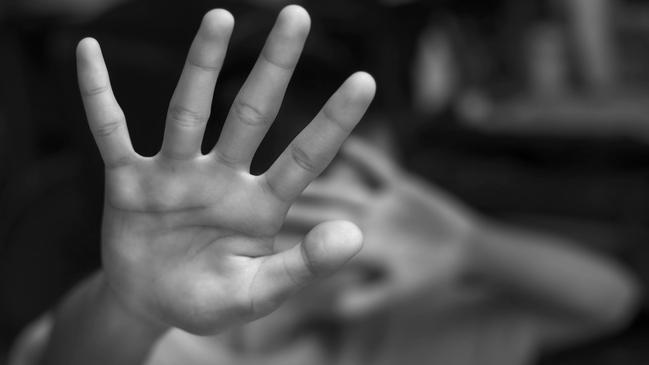
Murphy says reporting is incredibly difficult for all victim-survivors.
“For male victim-survivors there are unique barriers to reporting as men have commonly recounted being laughed at, embarrassed or rejected as a victim-survivor,” she says.
“When engaging with police, victim-survivors have reported times where law enforcement or support services displayed homophobic biases, disregarded their reports or assumed them to be the perpetrators.
“Historically, victim-survivors of child sexual abuse have been disbelieved, while justice systems have heavily questioned or actively discredited disclosure by children.
“Although Australia has made significant steps forward in the acknowledgment of sexual victimisation, social and cultural norms that promote heteronormativity and patriarchal masculinity continue to limit male victim-survivors’ ability to reach out and receive appropriate, tailored support.”
Murphy says discussions of victim-survivors need to include victim-survivors and their experiences.
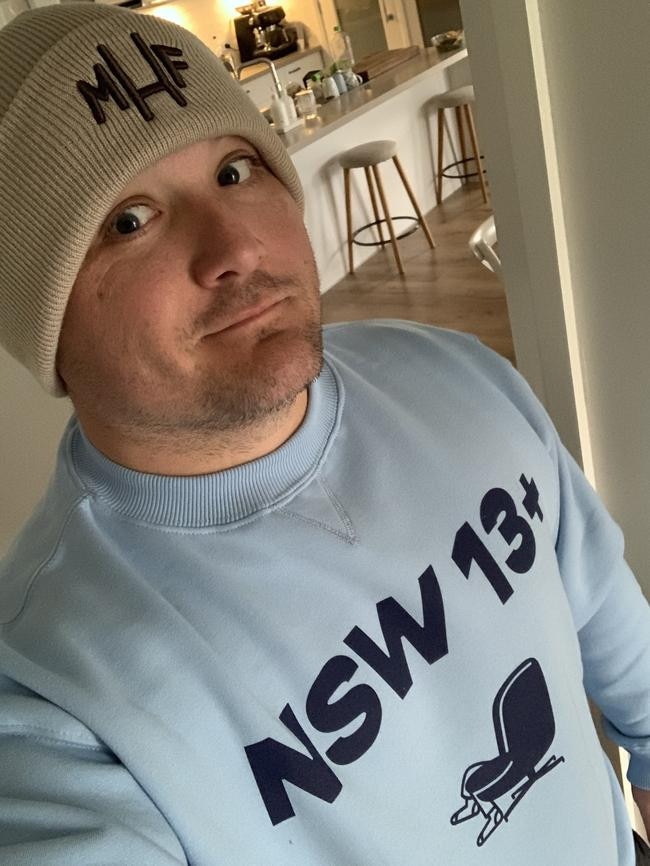
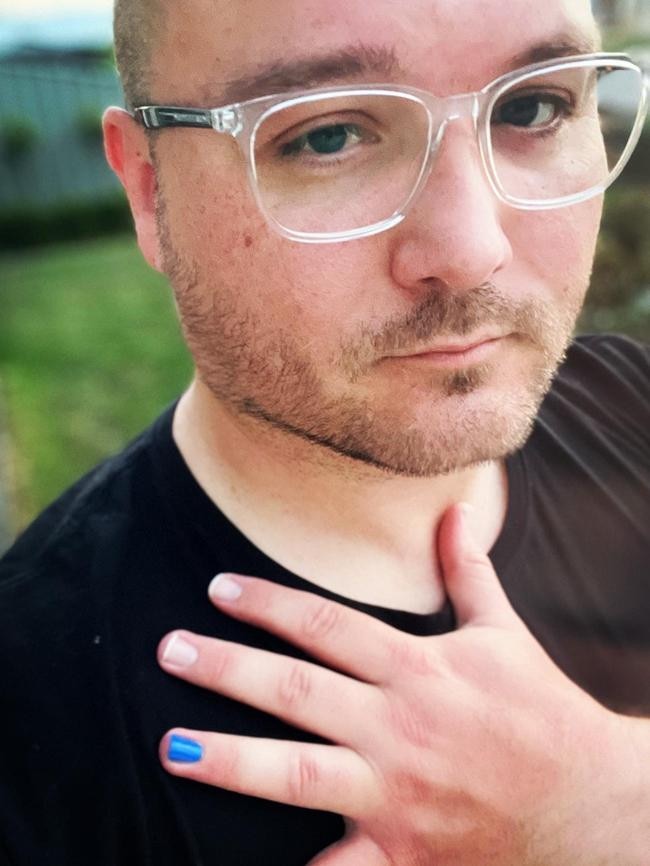
For James, despite having gone through years of abuse, he has dedicated his life to sharing his experience to create fundamental change.
“I want survivors to know that their power is limitless by embracing our own strength and our own resilience,” he says.
“We can drive that meaningful change and create a future that is better for ourselves and others and that is really the legacy that I strive to leave through my advocacy and my work.”
Harrison James and Josh Byrnes have been instrumental in the Your Reference Ain’t Relevant campaign which seeks to remove the provision of good character references for pedophiles in the sentencing procedure of child sexual abuse cases.
SAMSN provides support for male survivors of child sexual abuse: samsn.org.au, 1800 472 676.
Other support services include Lifeline 13 11 14: Kids Helpline 1800 551 800; and Beyond Blue 1300 22 4636



